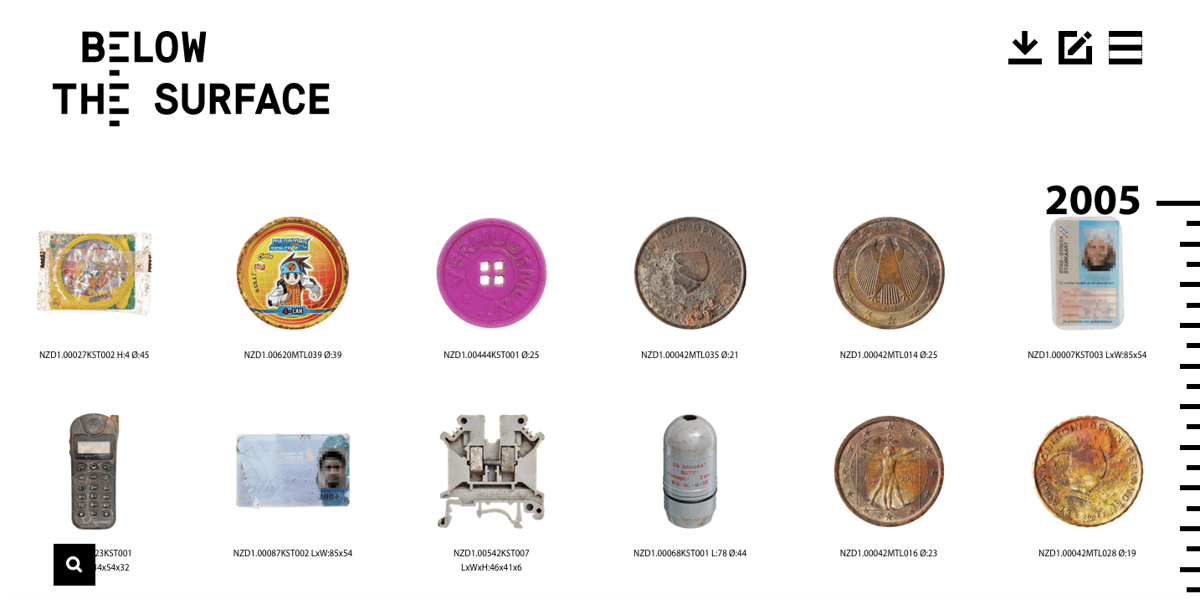Hidden treasures of Amsterdam’s river

Between 2003 and 2012, civil engineers in Amsterdam excavated a brand-new North-South metro line along the banks of the river Amstel. A website (thankfully available in Dutch and English) documents what they found.
Rivers in cities are unlikely archaeological sites. It is not often that a riverbed, let alone one in the middle of a city, is pumped dry and can be systematically examined. The excavations in the Amstel yielded a deluge of finds, some 700,000 in all: a vast array of objects, some broken, some whole, all jumbled together. Damrak and Rokin proved to be extremely rich sites on account of the waste that had been dumped in the river for centuries and the objects accidentally lost in the water. The enormous quantity, great variety and everyday nature of these material remains make them rare sources of urban history. The richly assorted collection covers a vast stretch of time, from long before the emergence of the city right up to the present day. The objects paint a multi-facetted [sic] picture of daily life in the city of Amsterdam. Every find is a frozen moment in time, connecting the past and the present. The picture they paint of their era is extremely detailed and yet entirely random due to the chance of objects or remains sinking down into the riverbed and being retrieved from there. This is what makes this archaeological collection so fascinating, so poetically breathtaking and abstract at one and the same time.
If you don’t love browsing through lost IDs, credit cards, and everyday coins, a section called “Object Stories” highlights the more noteworthy finds: batteries from the 19th century, stoneware jugs and tankards from the 16th century, pieces of samurai swords, and more.





Stay Connected